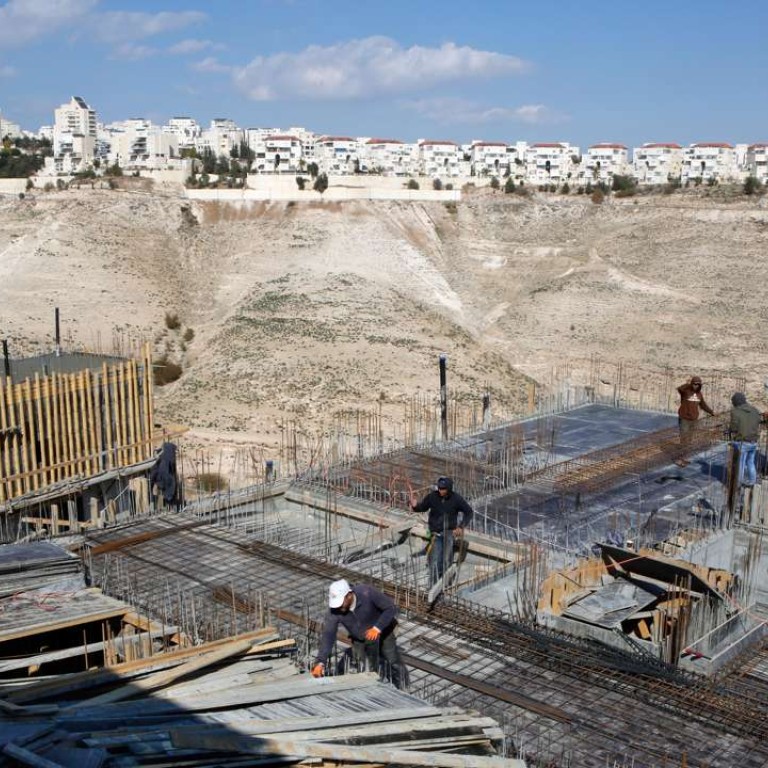
Israel delays West Bank annexation vote until after Trump-Netanyahu meeting next month
Israeli Prime Minister Benjamin Netanyahu has delayed a vote on an explosive proposal to annex one of the West Bank’s largest settlements, apparently to co-ordinate his policy toward the Palestinians with the new administration of US President Donald Trump.
In a Sunday phone call, Trump invited the Israeli prime minister to visit the White House early next month.
The two leaders also “agreed to continue to closely consult on a range of regional issues, including addressing the threats posed by Iran,” the White House said in a statement, signalling the new administration’s tougher line on Tehran.
Israel approved hundreds of new settler homes in east Jerusalem Sunday hours before the telephone call, which an Israeli statement described as “very warm”.
But the plan to annex a large West Bank Jewish settlement unilaterally was shelved until after Netanyahu and Trump meet.
“The prime minister expressed his desire to work closely with President Trump,” Netanyahu’s office said in a statement.

After eight years of frosty relations with Barack Obama, Netanyahu has welcomed Trump’s election as an opportunity to strengthen ties between two allied nations.
With Trump signaling a more tolerant approach toward the much-maligned settlement movement, Israel’s nationalist right now believes it has an ally in the White House, and Israeli hard-line leaders make no secret they will push for aggressive action in the occupied West Bank.
Education Minister Naftali Bennett, leader of the pro-settlement Jewish Home Party, has been pushing Netanyahu to abandon the internationally backed idea of a Palestinian state and to annex the Maaleh Adumim settlement near Jerusalem.
But after convening his Security Cabinet on Sunday, Netanyahu said his Cabinet ministers, including Bennett, had decided “unanimously” to delay action until he goes to Washington.
Earlier Sunday, Netanyahu thanked Trump for his friendship and his inaugural speech pledge to battle radical Islamic militants.
Netanyahu, a longtime supporter of the settlements, has nonetheless been cautious about expanding them in the face of strong opposition from the international community. In a final showdown with Israel last month, the Obama administration allowed the UN Security Council to pass a resolution condemning settlements as illegal.
But Bennett and other hard-liners believe there is no longer any reason for restraint.

There was no official explanation for Sunday’s delay. But earlier, an official in the Jewish Home Party said Netanyahu had been trying to delay the Cabinet vote at the request of the Trump administration, which did not want to be blind-sided by unilateral Israeli steps. The official spoke on condition of anonymity because he was not authorised to discuss internal coalition negotiations.
Annexing Maaleh Adumim, a sprawling settlement of nearly 40,000 people east of Jerusalem, could cause a major clash with the Palestinians and the rest of the international community.
The Palestinians seek all of the West Bank and east Jerusalem — areas captured by Israel in the 1967 Mideast war — for a future state. The Palestinians and the international community consider all settlements illegal, and unilaterally making Maaleh Adumim part of Israel would deal a powerful blow to hopes for a two-state solution.
To the Palestinians, it would be seen as undermining negotiations. Maaleh Adumim is also strategically located in the middle of the West Bank, potentially hindering the establishment of their state.
“If they are serious about making it part of Israel and closing it down, then it is actually cutting the West Bank into two,” said Hagit Ofran of the anti-settlement group Peace Now.
While Trump has not expressed an opinion on the annexation, he has signaled a kinder approach toward the settlement movement than any of his predecessors.
His designated ambassador to Israel has close ties to Jewish West Bank settlements, and a delegation of settler leaders attended Trump’s Friday inauguration as guests of US administration officials.
Additional reporting by Agence France-Presse

